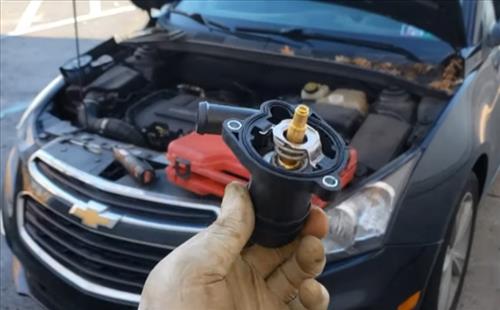
If you have a Chevy Cruze that is overheating or has no heat, you may have an issue with the thermostat.
The thermostat is a common failure on the Chevy Cruze and also one of the more easier DIY fixes.
Symptoms of a Chevy Cruze with a Bad Thermostat
- Overheating
- No Heat During Very Cold Weather
- Coolant or Sweet Smell
- Coolant Leaking
When a thermostat fails, the most common symptom is the car overheats with a coolant smell coming from the engine.
Antifreeze used in the vehicle’s coolant system has a distinct smell that is often described as sweet.
Keep in mind the symptoms of a bad thermostat are the same as other failed coolant system components such as the water pump or leaky radiator.
No heat is another symptom many users report when the weather is very cold.
How the Thermostat Works
The thermostat opens and closes, blocking the flow of the coolant, which regulates the temperature.
When the engine is cold, the thermostat is closed, which stops all coolant from flowing, and the engine warms up.
When the engine starts to become hot, the thermostat slowly opens and begins to cool the engine.
If the thermostat has gone bad and does not open, the car will run hot and likely overheat.
Likewise, if the thermostat has gone bad but is stuck fully open, the vehicle will not heat up, especially in very cold weather.
The thermostat is a simple device that opens and shuts, regulating the flow of coolant to maintain the engine temperature.
How To Diagnose a Chevy Cruze with a Bad Thermostat
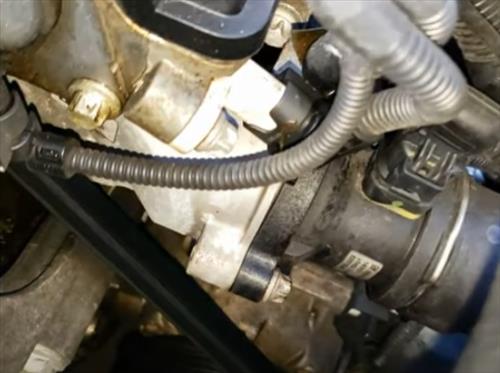
If the thermostat housing is leaking, it is likely bad.
Roughly half of the bad thermostats leak, but sometimes there is no leak, and other tests need to be done.
There are several ways to test if a thermostat is good or bad.
A common method to test for a bad thermostat is to measure the temperatures at the intake and exhaust hoses from the radiator.
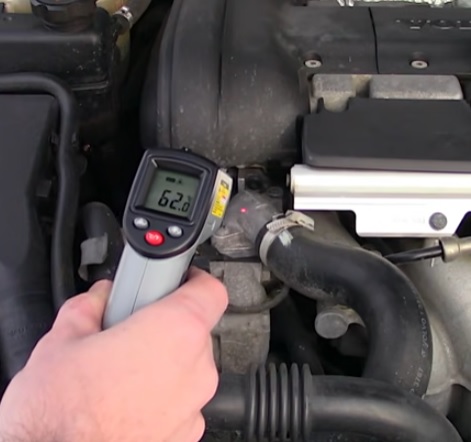
Once the car is warmed up, the temperatures should be close between the top and bottom hose.
If the temperatures are far apart 20 percent or more, the thermostat is likely bad.
Another testing method is with the engine cold, remove the radiator cap.
Start the car and watch the coolant fluid inside the radiator.
Once the car warms up, the thermostat should open, and the fluid should be seen flowing.
Chevy Cruze Thermostat Location
The thermostat is located on the passenger side of the vehicle at the front of the engine.
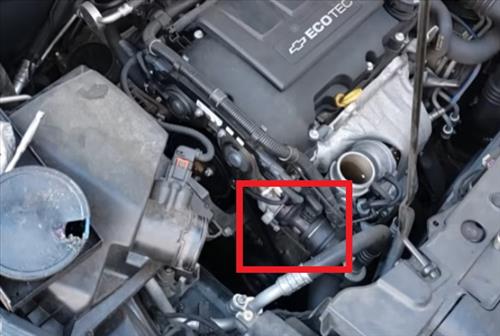
There is an air intake hose that will need to be removed to work on it.
A new thermostat can be bought at most auto-part stores or online on Amazon or eBay.
How To Replace a Chevy Cruze Thermostat
- Drain the coolant by opening the plug on the passenger side bottom front of the radiator.
- Using a 7mm socket, remove the air intake hose.
- Using a small screwdriver, remove the electrical wiring connection to the thermostat.
- Using a screwdriver lift the clip on the hose close to the radiator and pull the hose off.
- Remove the two bolts and small hose attached to the thermostat.
- The thermostat should come out when done.
- Clean the surface on the engine.
- Place the gasket on the new thermostat.
- Insert the thermostat and bolt it back in along with attaching the small hose.
- Reattach the hose from the radiator
- Reattach the air intake hose
- Add back in coolant until full.
Summary
The Chevrolet Cruze is a great car but does have some common failures.
The coolant system is one such common issue many users have reported.
The thermostat is often the first component to go bad in the coolant system, but the water pump can also go bad.
The thermostat is a low-cost item, and replacement is a task done by many DIY backyard mechanics.
Of course, if in doubt, be sure to take your car to a certified professional.
Have you had issues with the thermostat on your Chevy Cruze? Let us know your thought below.
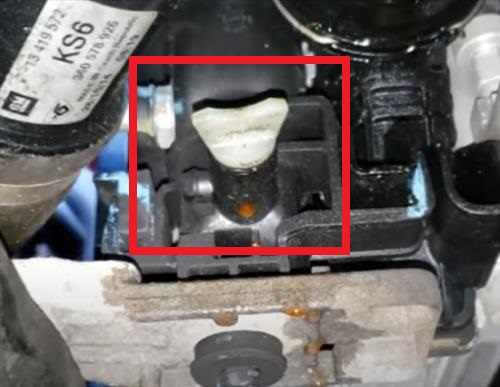
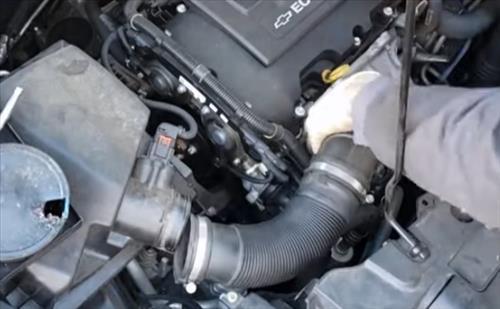
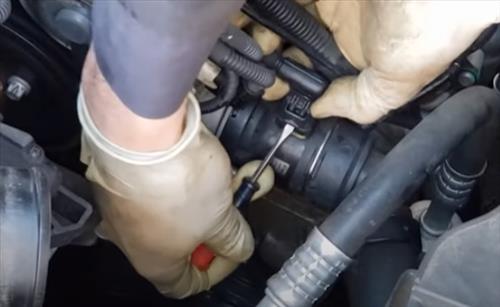
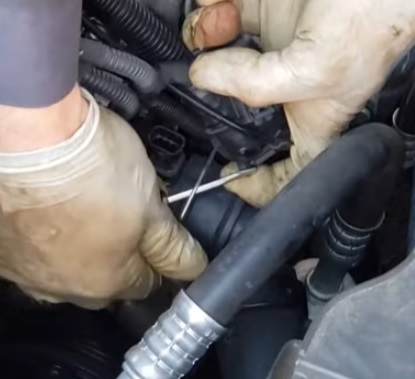
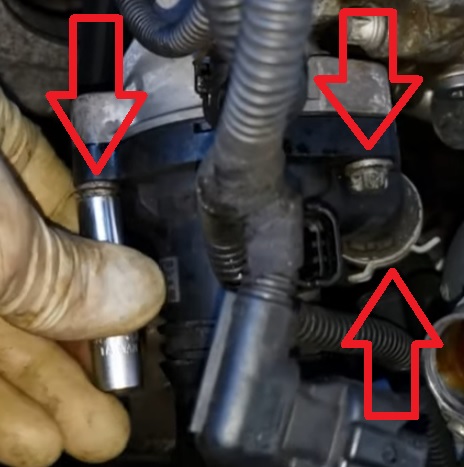
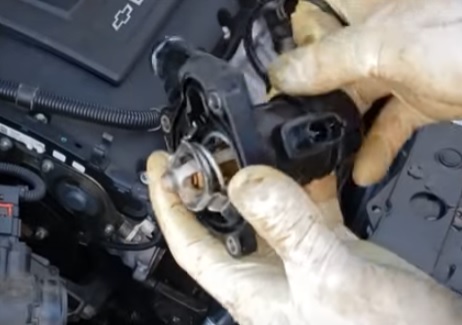
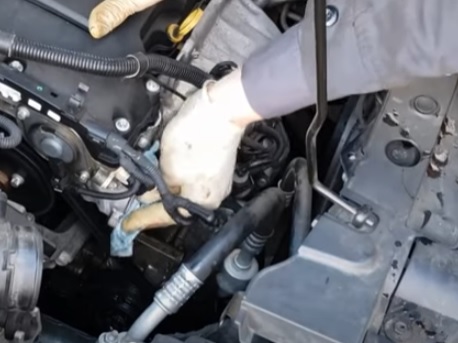
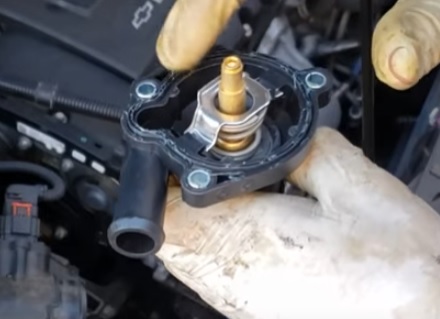
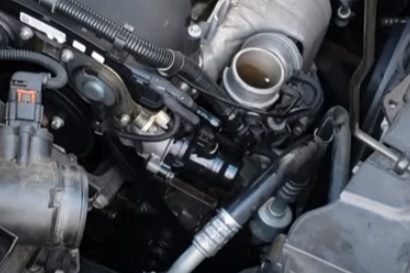
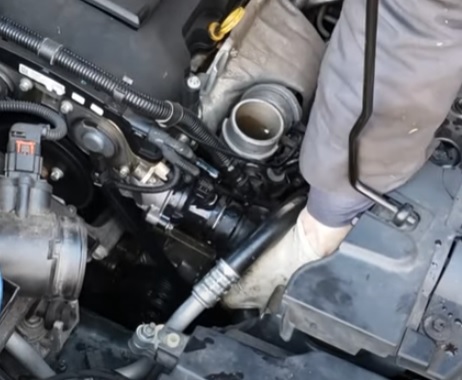
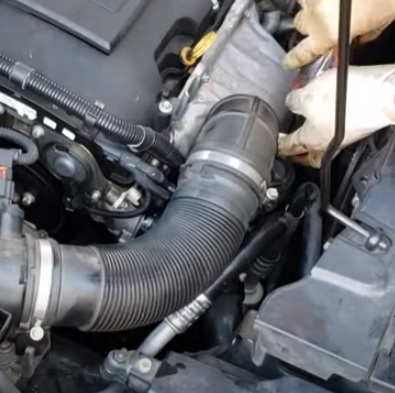
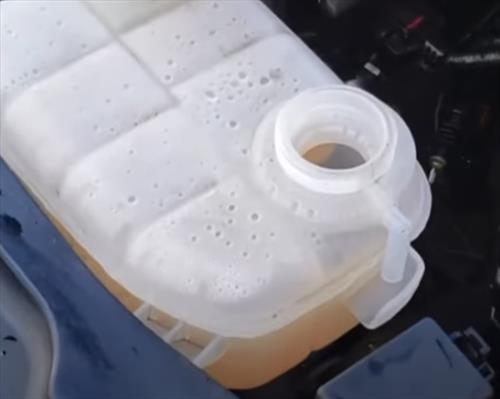
Are the diesel versions the same as the gasoline versions? Do they use the same thermostats?
I have already changed the thermostat in my 2014 Cruze 3 times in a year and now I think it’s going out again thank God for warranty
Hello, I just replaced my thermostat and it overheats worse now than before, one hose super hot, one hose cool. I assume the thermostat is defective. How did you know your thermostat was defective?
My daughters car over heated, the Waterpump is relatively new, there was enough coolant in the system, I bled radiator to make sure there was no air in system and a day later it overheated, but while trying to make it home overheating, the gage miraculously went back to normal. I figured it must be the thermostat so I ordered an OEM replacement from GM and replaced it. Now it overheats all the time. Hmmmm. I have good heat, radiator fans turn on, but when I grad the hoses, the hose connected to the thermostat is definitely much cooler than the one on the driver side of the car. I also have a pending P00B7 code. It would appear that I installed a defective thermostat, but I am not 100% sure. Any ideas on what could be causing this issue? A new head, head gasket, and water pump was installed 3 months ago. I will be replacing thermostat again, but wanted to know if there is something i am missing. PS, I hooked up my scan tool and the temperature hovers around 200, but when driving slowly creeps up and down, till it gets up above 250 when overheat warning displays. I did notice that the dash gauge doesn’t correlate with the scan tool very well, the dash gage goes from normal to slightly high to max level , even though I am getting variable temps from the scan tool.
You could remove the thermostat temporally and drive it without one to see if the thermostat is faulty. Also squeeze the radiator hose to see if coolant is flowing through. If coolant is flowing through, then the water pump is working. Once those components are eliminated as a cause, other things can be looked at.